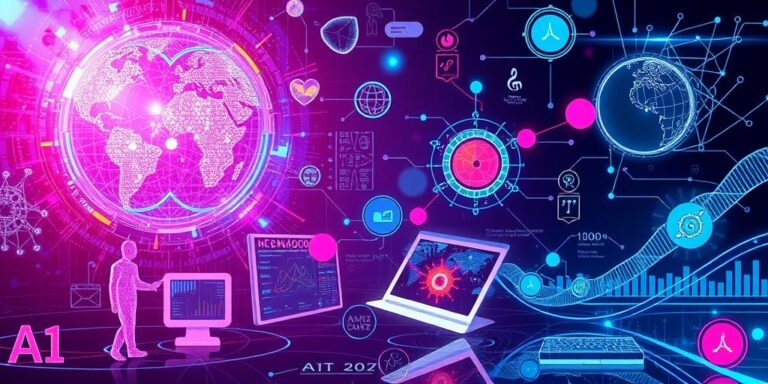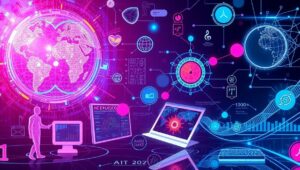The Future of AI in Creative Collaboration (Art, Music, Writing – 2027)
Artificial intelligence (AI) is rapidly evolving, and its integration into creative fields is becoming increasingly significant. By 2027, we can expect AI to be a ubiquitous tool for artists, musicians, and writers, augmenting human creativity and enabling new forms of expression. This article explores the potential future of AI in these creative domains.
Art
AI’s role in art is expanding beyond simple image generation. In the coming years, AI will likely assist artists in various stages of the creative process:
- Concept Development: AI algorithms can analyze vast datasets of art history, trends, and styles to suggest novel concepts and themes. Artists can use these insights to spark their imagination and explore new directions.
- Style Transfer and Enhancement: AI can transfer the style of one artwork to another or enhance the details and composition of an existing piece. This allows artists to experiment with different styles and refine their work more efficiently.
- Collaborative Creation: AI can act as a creative partner, generating variations of an artwork based on artist input. This iterative process allows for a dynamic collaboration between human and machine, leading to unexpected and innovative results.
Music
In the realm of music, AI is poised to transform composition, performance, and production:
- AI-Assisted Composition: AI can generate melodies, harmonies, and rhythms based on specific parameters defined by the composer. This can help overcome creative blocks, explore different musical ideas, and create complex arrangements more easily.
- Intelligent Instruments: AI-powered instruments can adapt to the player’s skill level and playing style, providing real-time feedback and assistance. This can make music creation more accessible to beginners and enhance the performance of experienced musicians.
- Personalized Music Experiences: AI can analyze listener preferences and generate personalized music playlists or even compose original music tailored to individual tastes. This could revolutionize the way we discover and consume music.
Writing
AI’s impact on writing is already evident, with tools that assist with grammar, style, and content generation. By 2027, AI will likely play an even more significant role in the writing process:
- Automated Content Creation: AI can generate various types of written content, from news articles and blog posts to marketing copy and technical documentation. This can free up writers to focus on more creative and strategic tasks.
- Enhanced Storytelling: AI can assist writers in developing plots, characters, and dialogue. By analyzing successful stories and identifying patterns, AI can provide insights that help writers create more compelling and engaging narratives.
- Personalized Learning: AI can adapt to the writer’s skill level and provide personalized feedback on their writing. This can help writers improve their skills and develop their unique voice.
Challenges and Considerations
While the future of AI in creative collaboration is promising, there are also challenges and considerations to address:
- Ethical Concerns: Questions about copyright, ownership, and the potential for AI to displace human artists need careful consideration.
- Bias and Representation: AI algorithms are trained on data, and if that data reflects existing biases, the AI will perpetuate those biases in its creative output.
- Maintaining Human Creativity: It’s crucial to ensure that AI serves as a tool to augment human creativity, rather than replacing it altogether. The focus should be on collaboration and empowering artists to explore new possibilities.
Conclusion
By 2027, AI will be an integral part of the creative process in art, music, and writing. It will augment human capabilities, enabling new forms of expression and innovation. While challenges and ethical considerations must be addressed, the potential benefits of AI in creative collaboration are immense. The future of creativity is one where humans and machines work together to push the boundaries of art, music, and literature.




